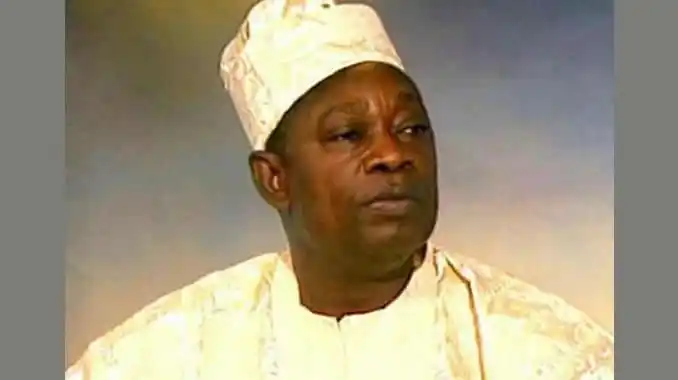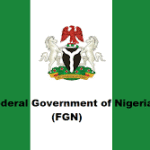In the 1970’s and 80s, there was only name in the production of exercise books in Eastern Nigeria- Star Paper Mill Aba. So also was there only one roofing sheet in the region, produced by an Owerri based manufacturing company, called Fuason Industries.
However, with the death of Chief Nnanna Kalu, founder of Star Paper Mill and the death of Eze Fredrick Anyanwu, founder of Fuason Industries, the two important industries died, as the children of the founders of the business could to sustain them.
The story of Fuason and Star Paper Mill rather than being isolated cases, is the pattern across the country, even as the failures cut across sectors, with far reaching implication on Nigeria’s economy, which was once almost self sustaining in manufactured products, but now almost depending 100 per cent on the importation of the same goods it was hitherto producing locally. That ranges from automobiles to household items, through pharmaceuticals to as little as little as matches and toothpicks.
Consequent upon this retrogression, Nigeria’s currency which in the 70s and 80s was at a time stronger than the United States Dollars, now exchanges at about N1, 600 per one US dollar.
It is a case of two sides of the coin with Nigeria and most advanced economies.
On one side of the coin, notable conglomerates in the 70s and 80s like the late Chief MKO Abiola’s Concord Group comprising Concord Press, Concord Airlines, Abiola Farms, and Wonder Loaf Bakery, among others, today are nothing but faded memories of the once-internationally acclaimed entrepreneur and philanthropist.
On the other side of the coin, names such as the International Business Machine (IBM), Coca-Cola, Ford Motors, Nestlé, Pepsi, General Electric, Procter & Gamble, and Bacardi ring a bell. Apart from being large, highly successful global businesses, they also have something very interesting in common.
Some of these businesses, like Ford and Bacardi, have remained within family circles, and passed through successive generations. Other businesses — like Coca-Cola, IBM, and General Electric — have changed hands several times but continue to exist and expand as very successful companies.
Do family-controlled businesses have a better chance of ‘multi-generational survival’ than non-family-controlled businesses? Interestingly, there is some evidence in favour of family-controlled businesses. However, both types of businesses have a good chance of survival if some things are done right.
Across the country, the situation is different. Apart from a handful of small family businesses like the Dantata and the Isyku Rabiu dynasties of Kano, the GUOs and recently Otunba Subomi Balogun’s FCMB, most indigenous Nigerian businesses and brands don’t survive their founders.
However, Industrial and General Insurance (IGI), a Public Limited Company, on the death of its founder and Executive Vice Chairman in 2014, Mr Remi Olowude, elected for itself a new Chairman/Managing Director, Mr Rotimi Fashola.
Though IGI has changed Managing Director since then, it has remained resilient, paying N1.8 billion claims in 2024 and setting fresh targets for itself in 2025.
Changing Dynamics
Abia moves to revive moribund Paper Mill, makes offer to AMCON
Abia State Governor, Dr. Alex Otti, has said that his government was presently engaged in negotiations to acquire the moribund Star Paper Mill, Aba and bring the industry back to life.
He made this known during a grand civic reception organised in his honour by the Abiriba Communal Improvement Union (ACIU) at the Enyimba International Stadium, Aba.
Otti said that his government has already made a buyback offer to the Asset Management Corporation of Nigeria (AMCON), which took over the Paper Mill after it shut down.
The Abia Governor noted that the hitherto blossoming Star Paper Mill had gone under, thereby necessitating its takeover by the Asset Management Corporation of Nigeria(AMCON), which is yet to revive it.
“I grew up here (in Aba), I was born here. I knew how important Star Paper Mill was, not just to Aba, not just to Abia State, not just to the East of the Niger, but to Nigeria,” Otti recalled with nostalgia.
“As we speak, we know that Star Paper Mill has been taken over by AMCON. But, one thing you can take to the bank is that under our watch, Star Paper Mill will be back,”Otti assured the people.
Star Paper Mill, which in its heyday, ranked among Nigeria’s finest producers of exercise books, tissue paper and other paper products, was owned by a renowned Aba-based, Abiriba-born industrialist, Nnanna Kalu.
After his death, his son, (now late) took over the management of the paper mill but the harsh economic climate dealt a devastating blow to the company, forcing it to close down over a decade ago.
Elsewhere at Coscharis Group, the Chairman, Dr Cosmas Maduka, had over three years ago, said that his children, who he had intentionally groomed to take over the business from him are reaching the age of maturity and he would soon step back and watch them gradually take over the business.
To this end, his first son, Cosmas Junior Maduka, has stepped in as the Executive Director of after Sales Services and Special duties at Coscharis Group.
Dangote starts handing over key firms to his daughters
In a strategic move signaling a legacy transition, Aliko Dangote, Africa’s richest businessman and founder of the Dangote Group, is gradually stepping back from leadership roles in his vast business empire, paving the way for his three daughters to take on greater responsibilities.
In June 2025, the 68-year-old billionaire retired as chairman of Dangote Sugar Refinery Plc after two decades.
On July 25, 2025, he stepped down as chairman of Dangote Cement Plc, a cornerstone of his conglomerate, to focus on his $20 billion oil refinery and other energy ventures.
His eldest daughter, Mariya Dangote was appointed to the board of Dangote Cement in July 2025, replacing her father. She has served as executive director of operations at Dangote Sugar Refinery since 2022 and has held strategic roles at Dangote Industries Limited since 2016.
She holds an MBA from Coventry University, UK, and is also a board member of Dangote Peugeot Automobiles Nigeria.
Halima Dangote, the second daughter, has been director at Dangote Cement since early 2022, following the passing of her uncle, Sani Dangote. She established the Dangote Family Office in Dubai in 2023 and serves as a trustee of the Aliko Dangote Foundation. She previously held executive roles at NASCON Allied Industries, where she remains a board member.
Fatima Dangote, the third daughter, is the Group Executive Director for commercial operations at Dangote Industries Limited, overseeing strategy, communications, procurement, and administration. She has been a board member of NASCON Allied Industries since 2023, with prior executive roles since 2016. She plays a key role in the Aliko Dangote Foundation and focuses on backward integration in the sugar sector.
Speaking about the roles of his daughters in the Dangote Group, Alhaji Aliko Dangote said: “Mariya, Halima, and Fatima are critical to the success of our business, holding major roles across my companies and contributing significantly to our achievements.”
Analysts say this succession plan reflects Dangote’s intent to secure his family’s legacy while shifting his focus to strategic projects like the Dangote Refinery, which now refine 500,000 barrels of crude oil per day with plans to reach the 650,000 installed capacity.
Neya Kalu, Chairman/Publisher of Sun Newspaper
Neya Kalu, about two years ago, assumed the headship of Sun Newspapers when her father, Senator Orji Uzor Kalu, stepped down as the Publisher of the Newspaper. Kalu however remains the founder of the newspaper.
While appreciating the honour bestowed on her for the humongous task of piloting the affairs of the newspaper, at least for the next decade, Neya promised to lead the company to greater heights while relying on the solid foundation that has existed since its inception.
Educated at the University of Buckingham, England, with a degree in Law and Finance, Neya runs Base Coat, a chain of nail salons in Lagos. She is also the Vice-Chairman of Sun Heavens Hotels and Resorts.
She started off from the banking sector, rising to the position of Human Resources Manager.
Late Subomi Balogun’s effective succession plan at FCMB
Before his father’s death, Bolaji, late Otumba Subomi Balogun’s first son, was the investor and boss of a financial advisory service company, Chapel Hill Denham. Many may not know the extent of this until the passing onto eternal glory of the banking wizard in May 2023.
The high-flying businessman was not only a wizard but also a colossus in the Nigerian money market. He was a man of excellence and integrity; a trailblazer and pioneer extraordinaire in the sector.
He left a very big-sized shoe that people thought would be difficult for anyone to fill. But the elder Balogun before his passing carefully worked out the handover of the family business empire to his son, Bolaji.
Contrary to the thought of many, this was done harmoniously without any rancour whatsoever. Source revealed that Bolaji’s other three brothers, Ladi, Jide and Gboyega would also assist him in running the vast empire and assets left behind by the stylish business mogul.
Another source revealed that before his death, the Ogun State-born billionaire had carefully planned his succession in such a way that it would be rancour-free. Being the eldest and the most mature of all his kids, the late FCMB founder had made his stand known that Bolaji was to step in and amicably manage the family and his vast investments.
He also indicated who gets what and what should go to the church and philanthropy.
It was also disclosed that this was done to make the transition seamless with minimal rancour. The structure put in place by the late Balogun was for all his children to continue to manage all the arms of business they were managing before his death and for the returns on those investments to be put in the general purse for equitable sharing.
Globacom: Bella, Shade on the card
Bella Disu, is one of the most prominent boardroom personalities in Nigeria as the Executive Vice Chairman of Globacom, which is the telecommunications company founded by her father, Dr. Mike Adenuga. She previously served as a Group Executive Director before assuming the number two position within the company. Another daughter of Dr Adenuga, Shade Michael-Adenuga, is the Group Executive Director at Globacom
Globacom (Glo) is a major Nigerian multinational telecommunications company. It was the second-largest network operator in Nigeria, with over 45 million subscribers.
Glo provides a wide range of services including mobile, broadband, and enterprise solutions. The company was founded by Mike Adenuga and launched in 2003.
Market share
Globacom was rated as Nigeria’s most valuable brand in 2020.
This was the result of findings from the country’s top 25 most valuable brands surveyed and published by United Kingdom based Brand Finance, the world’s leading branded business valuation and strategy consultancy company. It showed that the telecommunication company recorded a total of $569million revenue in 2020 improving by 15 per cent from $494 million, making it number one in Nigeria.
However, in April 2025, it lost its second position, becoming the third-largest telecommunications operator, as its market share fell to an all-time low of 11.9 per cent, according to the recent data from the Nigerian Communications Commission (NCC). The operator lost 108,393 subscribers in just one month, dropping from 20.7 million in March to 20.6 million in April.
Experts say this decline is the culmination of years of operational, service quality, and governance challenges that now threaten both competition in the sector and the quality of service Nigerian subscribers receive.





